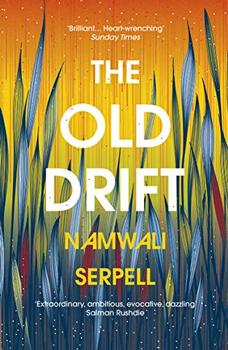Summary | Excerpt | Reading Guide | Reviews | Beyond the Book | Readalikes | Genres & Themes | Author Bio

Prologue
Zt. Zzt. ZZZzzzZZZzzzzZZZzzzzzzo'ona.
And so. A dead white man grows bearded and lost in the blinding heart of Africa. With his rooting and roving, his stops and starts, he becomes accidental father of this land, our pater muzungu. This is the story of a nation – not a kingdom or a people – so it begins, of course, with a white man.
Once upon a time, a goodly Scottish doctor caught a notion to locate the source of the Nile. He found instead a gash in the ground full of massed, tumbling water. His bearers called it Mosi-o-Tunya, The Smoke That Thunders, but he gave it the name of his queen instead. In his journal, he described the Falls with a stately awe, comparing the far-flung water to British things: to fleece and snow and the sparks from burning steel, to myriads of small comets rushing on in one direction, each of which left behind its nucleus rays of foam. He speculated that angels had gazed upon it and said, 'How lovely.' He opined, like a set designer, that there really ought to be mountains in the backdrop.
Years passed. Adventure. Disaster. Fame. Commerce. Christianity. Civilisation. He was mauled by a lion that shook him in its jaws, he said, as a dog shakes a rat. His wife died of fever; his beloved dog drowned. He voyaged over land and through swamps and along endless waterways. He freed slaves along the way, broke their chains with his very hands and took them on as his bearers. Late in his life, he witnessed a massacre – slave traders shooting at men and women in a lake, so many the carcasses choked it and the canoes could not pass. He despaired. He was broken, broke; his queen had forgot him; the Royal Geographers had declared him dead. Then a mercenary Welsh bastard named Stanley found him, presumed, shook his hand, and sent word to London. And in an instant he was famous again, as if risen from the dead. Yet he refused to return to Merrie England.
Doddering, he drove deeper into the continent instead, still seeking his beloved Nile. Oh, father muzungu! The word means white man, but it describes not a skin colour but a tendency. A muzungu is one who will zunguluka – wander, aimless – until they zungusha, go in circles. And so our dizzy, movious muzungu pitched up here again, half-drowned in mud, dragging his black bearers with him.
His medicine box went missing – who took it? They never found out – and with it, his precious quinine. Fever hunted him and finally caught him. He died in a hut, in the night, kneeling on his bed, his head in his hands. His men disembowelled him, planted his heart under an mpundu tree, and bore his corpse to the coast. The HMS Vulture took his body home – what was left without the living was buried under stone at Westminster Abbey. His people recognized him by the scrapes of the lion's teeth on his humerus bone.
There was great wonder at the resolve of his bearers. To travel with a corpse for months on end, suffering loss and injury, sickness and battle? To forge on in blistering heat and blundering rain, beating off the superstition that to carry death is to beckon it? To come all the way to England, to answer to interrogation, to build a model of the hut that he died in? What faith! What love! No, no – what fear! That corpse, that body was proof. Without it, who would have trusted them? Who would have taken their word that a white man, among savages, had died of bad luck – a mere fever?
Men never believe that chance can wreak such consequence. Yet the story of this place is full of such slips and skids. Error, n., from the Latin errare: to stray or to veer or to wander. For instance, the bazungu who later carved this territory into a colony, then a protectorate, then a federation, then a country came here only because Livingstone did. They drifted in and settled the land, drew their arbitrary lines in the sand, stole treaties from the chiefs using a devious ruse: a Royal Charter that wasn't truly royal at all. Waving flags and guns and beads to trade with, they scrambled rabid for Africa, and claimed it was Dr Livingstone's legacy.
Excerpted from The Old Drift by Namwali Serpell. All rights reserved. No part of this excerpt may be reproduced or reprinted without permission in writing from the publisher.
We must believe in luck. For how else can we explain the success of those we don't like?
Click Here to find out who said this, as well as discovering other famous literary quotes!
Your guide toexceptional books
BookBrowse seeks out and recommends the best in contemporary fiction and nonfiction—books that not only engage and entertain but also deepen our understanding of ourselves and the world around us.